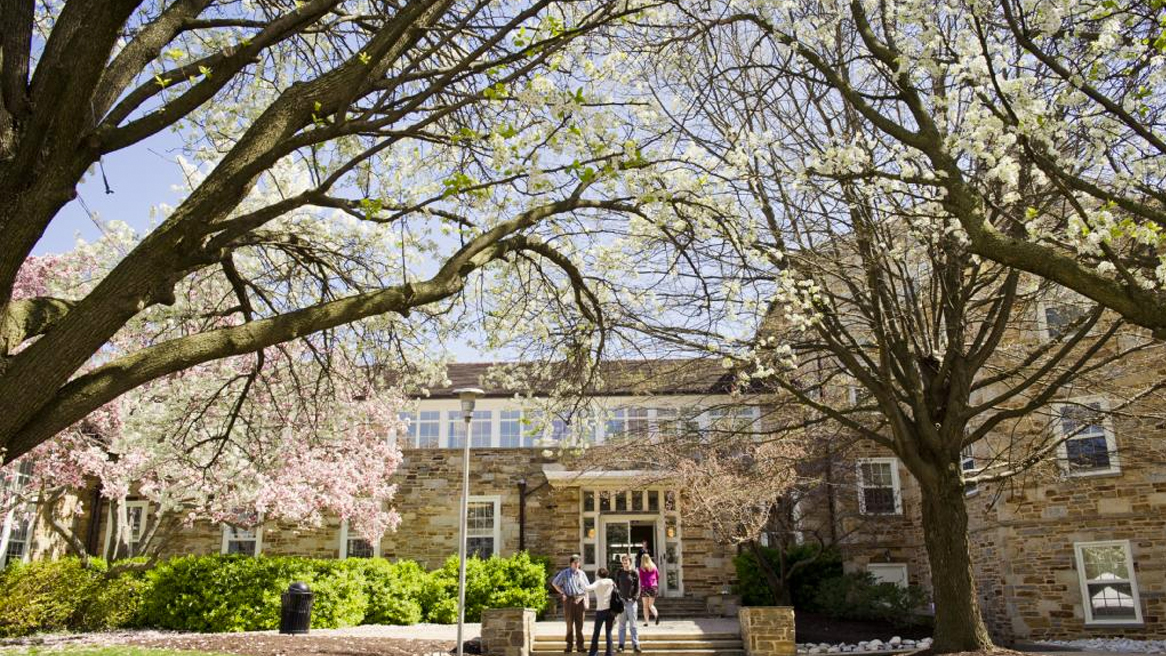When I was a student at Goucher, my dad would encourage me to try to learn a “hard skill” before I graduated. The workplace was a practical beast, he cautioned, and I needed a way to make myself stand out. Programming. Web design. Something.
I silently laughed whenever he told me this. Dad, I’d think, surely you misunderstand how today’s world works.
Like many of my fellow Goucher students, in those days I believed that the modern workplace was friendlier to graduates of the liberal arts than it had once been. Gone were the days when employers narrow-mindedly insisted on graduates with degrees in the hard sciences. Bosses today wanted critical thinking skills and creativity and flexibility and passion for learning. My dad was speaking not of the actual world but an antiquated one, a world of assembly lines and analog watches and giant desktop computers that couldn’t be used unless you had a degree in computer maintenance.
Then, in 2014, I graduated and entered the workplace. English degree in hand, I migrated from place to place — teaching English in Beijing and creative writing in Hong Kong, a stint of unemployment back home in Chicago — before landing a three-month unpaid internship with the literary organization PEN America in New York City. By this point I’d grown weary of not slotting into a more permanent job and lifestyle, and now, nearly two years after graduating, I was determined to stay put. But no matter how certain I was that I could excel in virtually any of the hundreds of thousands of entry-level roles across the New York City area, I couldn’t find work. I’d applied for some 100 jobs in perhaps four of the five boroughs of New York City by the time my three-month internship was up, including a position as a janitor at Brooklyn College. I didn’t so much as get an interview.
These days I think my dad was mostly right. The modern workplace continues to recognize and reward “hard skills,” just like the old one did. The types of jobs available may have changed — you really don’t need a degree of any kind to use a computer these days, and attributes such as creativity are more important than they used to be — but most good jobs still require solid qualifications, the sort that you can put on a CV or identify in the space of a few words.
In its 2017 report, “The Future of Jobs”, the World Economic Forum sought to predict how technology would change the workforce. Some of its findings echoed the kind of new age liberal arts optimism I once took as gospel. For instance, surveys of top executives said that, of the top 10 most desirable skills, critical thinking skills ranked second and that many of the other desired skills had to do with communication.
While such surveys could be used to paint an optimistic portrait of the future for liberal arts graduates, they shouldn’t overshadow the fact that the future of jobs is increasingly in science and technology — where employers really would require you to, say, check a box saying you have skills X and Y. According to recent projections by the Bureau of Labor Statistics, the job category predicted to experience the greatest growth over the period 2016-2026 (after healthcare-related work), is “Community and social service.” That’s a good fit for liberal arts grads, but the median annual wage in that sector in 2017 was $43,840. That’s barely half the $84,560 in median wages that will be earned in “Computer and mathematical occupations,” which will grow at nearly the same rate. Then there’s this year’s “Future of Jobs” report, which says the top two “emerging” jobs will be “Data analysts and scientists,” and “AI and machine learning specialists.”
This isn’t to say that you need a degree in computer science or engineering. But it is a useful reminder that some of the most valuable jobs in the future, as in the recent past, will be in fields for which no amount of creativity or communications prowess will substitute for a hard qualification. Outside of a limited number of professions, this is broadly true for many of the most desirable fields of work: business, law, medicine and nursing, architecture, and so on. The kinds of generalist thinking skills nurtured by liberal arts degrees — creativity, critical thinking skills, awareness of social and historical context — will always be valuable, but in most cases only on top of more fundamental qualifications.
My internship with PEN America wasn’t the ticket to New York City employment I imagined it would be. But it did help me realize I wanted to be a journalist, my dad’s old job and one that I had experimented with for some time. After a brief second stint of unemployment back home, I drove across the country to write for a local newspaper in rural California. It was this job, at last, that provided me with some way to “fit” in the world of work and, happily, some sense of direction. After California, I went to graduate school in London and then landed a journalism job here. I believe I was able to do it because at last I had a hard skill — reporting — to talk about during the job interview.
The workplace hasn’t really changed. Perhaps one day the world will be a more just place, and students who don’t choose to prioritize a job-oriented education — the ones who tend to gravitate towards the humanities, like English, modern languages, or philosophy — will be rewarded in the workplace just as much as students who make landing a job their chief focus. For now, however, this remains the case.
Photo Source: Google Images

